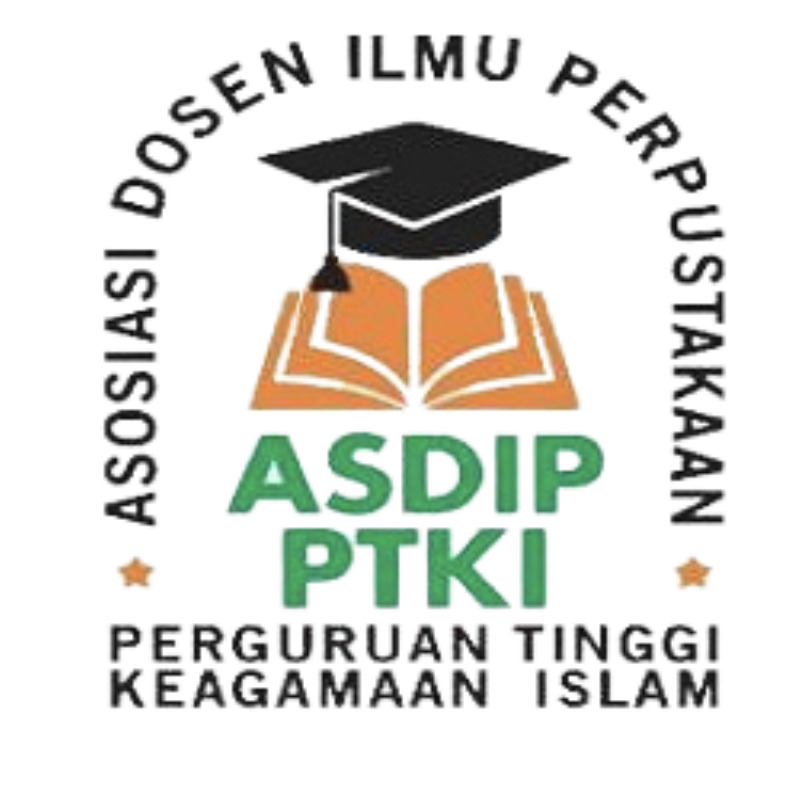Perilaku Masyarakat Terhadap Penyebaran Hoax Selama Pandemi Covid-19 Melalui Media di Indonesia: Tinjauan Literatur Sistematis
DOI:
https://doi.org/10.29240/tik.v6i1.3432Keywords:
Public behavior, hoaxes, Covid-19 pandemic, Media, Systematic Literature Review.Abstract
The spread of hoaxes is increasingly widespread in various media, causing changes in public behavior, especially during the COVID-19 pandemic. This research was conducted to see the development of publications related to public behavior towards hoaxes, the analysis related to the media for spreading hoaxes, and the impact of the spread of hoaxes on public behavior during the covid-19 pandemic This study uses the Systematic Literature Review (SLR) method by collecting literature related to the topics discussed then conducting an analysis of research on community behavior towards the spread of hoaxes during the COVID-19 pandemic through the media in Indonesia from 2020 to 2021. The results show that there are many the media used as a means of spreading hoaxes makes hoaxes more widespread, lack of understanding of information selection causes the spread of hoaxes to affect public behavior where people are anxious to take action during the covid-19 pandemic. This must be a concern for the government and the community, actions need to be taken to minimize the spread of hoaxes such as information literacy to the public regarding how to filter information from trusted sources.
Downloads
References
Albanna, & Heeks. (2019). Positive deviance, big data, and development: A systematic literature review. The Electronic Journal of Information Systems in Developing Countries.
Aprilia, C. S. (2021). Perilaku Panic Buying Dan Berita Hoaks Covid-19 Panic Buying Behavior and Covid-19 Hoax News in Bandung City. Comunio, 10(1). http://ejurnal.undana.ac.id/JIKOM/article/view/3600/2475
Bafadhal, O. M., & Santoso, A. D. (2020). Memetakan Pesan Hoaks Berita Covid-19 Di Indonesia Lintas Kategori, Sumber, Dan Jenis Disinformasi. Bricolage : Jurnal Magister Ilmu Komunikasi, 6(02), 235. https://doi.org/10.30813/bricolage.v6i02.2148
Bimo Walgito. (2005). Bimbingan dan Konseling (Studi & Karir). CV Andi Offset.
Chandani, S. (2021). Covid-19 Di Bondowoso Melalui Facebook Distribution Analysis of the Hoaks Pandemi Covid-19 News in Bondowoso Through Facebook.
Chumairoh, H. (2020). Ancaman Berita Bohong di Tengah Pandemi Covid-19. Vox Populi, 3(1), 22. https://doi.org/10.24252/vp.v3i1.14395
Feby Mukharomah, C., Ahmad, M., Pratama, R., Puspita Sari, M., Thoha Putri, A., Muttaqim Maulana, R., & Aris Wibowo, Y. (2021). People’s Knowledge and Behavior on the Covid-19 Virus Pandemic. LaGeografia, 19(2), 139–154. https://ojs.unm.ac.id/Lageografia/article/view/17830
Fitriany, M. S., Farouk, H. M. A. H., & Taqwa, R. (2016). Perilaku Masyarakat dalam Pengelolaan Kesehatan Lingkungan. Jurnal Penelitian Sains, 18(1), 41–44.
Hadi, Martanto Dwi Saksomo, Pujo Widodo, dan R. W. P. (2020). Analisis dampak pandemi Covid 19 di Indonesia ditinjau dari sudut pandang keamanan Siber. Jurnal Kebangsaan, 1(1), 1–9.
Hidayatun, V. A., Kesehatan, F. I., & Surakarta, U. M. (2021). Pengaruh Informasi “ Hoax †Terhadap Tingkat Kecemasan Masyarakat Surakarta Selama Pandemi Covid-19.
Huda, S., Trisna, I. W. W., & Rosyidah, H. U. (2020). Respons Masyarakat terhadap Upaya Edukasi dan Pencegahan Covid-19 di Instagram @Satgascovididijatim. W-2nd International Conference on Da’wa and Communication, November, 1–13. https://doi.org/10.5281/ZENODO.4718694
Juditha, C. (2018). Interaksi Komunikasi Hoax di Media Sosial Serta Antisipasinya. Journal Pekommas, 3(1), 31–34.
Juditha, C. (2020). People Behavior Related To The Spread Of Covid-19’s Hoax. Journal Pekommas, 5(2), 105. https://doi.org/10.30818/jpkm.2020.2050201
Komsiah, S. (2021). Sikap Masyarakat Dalam Menanggapi informasi Hoax Kesehatan di Instant Messengers. 2017, 1–10.
Mastel. (2017). Hasil Survey Mastel Tentang Wabah HOAX Nasional. http://mastel.id/infografis-hasil-survey-masteltentang-wabah-hoax-nasional/
Petticrew, Mark, & Roberts. (2006). Systematic Reviews in the Social Sciences: A Practical Guide. Blackwell Publishing.
Pratiwi, S. A., & Hidayat, D. (2020). Iklan Layanan Masyarakat COVID-19 Di Media Sosial dan Perilaku Masyarakat di Jawa Barat. Komunikologi (Jurnal Ilmiah Ilmu Komunikasi), 17(2), 1–7.
Priastuty, C. W., Rahmanto, A. N., Maret, U. S., Surakarta, K., Maret, U. S., Surakarta, K., Maret, U. S., & Surakarta, K. (2020). Hoaks tentang Vaksin Covid-19 di Tengah Media Sosial. Prosiding Seminar Nasional Unimus, 3, 391–399. https://prosiding.unimus.ac.id/index.php/semnas/article/view/641
Rayani, D., & Purqoti, D. N. S. (2020). Kecemasan Keluarga Lansia Terhadap Berita Hoax Dimasa Pandemi COVID-19. Jurnal Bimbingan Dan Konseling, 5(1), 906–912.
Respati. (n.d.). Mengapa Banyak Orang Mudah Percaya Berita “Hoax†? Kompas.Com.
Silaswati, D. (2018). Pentingnya Penentuan Topik dalam Penulisan Karya Ilmiah pada Bidang Ilmu Akuntansi. Jurnal Ilmiah Akuntansi, 9(1), 81–88.
Situmorang, L. M., Widhy, L. R., Indriastuty, P. D., Masyarakat, F. K., & Indonesia, U. (2020). PEMBERDAYAAN MASYARAKAT DI INDONESIA PADA MASA PANDEMI COVID-19 COMMUNITY EMPOWERMENT IN INDONESIA DURING COVID-19 PANDEMIC PENDAHULUAN COVID-19. December.
Torres Carrion. (2018). Methodology for Systematic Literature Review applied to Engineering and Education. IEEE Global Engineering Education Conference (EDUCON), 1364–1373.
Widodo, A. (2020). Teror Informasi dan Perilaku Mahasiswa Dalam Penggunaan Media Sosial Selama Pandemi Covid-19 Arif Widodo. Jurnal Ilmu Pendidikan PKN Dan Sosial Budaya, 4(1), 45–58. http://194.59.165.171/index.php/CC/article/view/364
Yudhaswara, R. K., & Hidayat, D. (2020). Perilaku selektif memilih informasi covid-19 di media massa.
Yusriani. (2020). Pengetahuan dan Tingkat Kecemasan Mempengaruhi Perilaku Panic Buying Selama Pandemic Covid-19. Ilmu Pengetahuan Dan Teknologi, 3, 38–46.
Downloads
Published
Issue
Section
Citation Check
License
Authors who publish with Tik Ilmeu : Jurnal Ilmu Perpustakaan dan Informasi agree to the following terms:
- Authors retain copyright and grant the journal right of first publication with the work simultaneously licensed under a Creative Commons Attribution-NonCommercial-ShareAlike 4.0 International License (CC BY-NC-SA 4.0) that allows others to share the work with an acknowledgment of the work's authorship and initial publication in this journal.
- Authors are able to enter into separate, additional contractual arrangements for the non-exclusive distribution of the journal's published version of the work (e.g., post it to an institutional repository or publish it in a book), with an acknowledgment of its initial publication in this journal.
- Authors are permitted and encouraged to post their work online (e.g., in institutional repositories or on their website) prior to and during the submission process, as it can lead to productive exchanges, as well as earlier and greater citation of published work (See The Effect of Open Access).







 This work is licensed under a
This work is licensed under a 